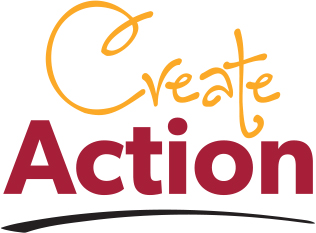 With the financial support of the Canada Mortgage & Housing Corporation (CMHC), the Community Data Program (CDP) of the Canadian Community Economic Development Network (CCEDNet) has launched a Solutions Lab project called “Developing easy-to-use community decision-making tools to help achieve National Housing Strategy goals”. This project will help organizations find the best way to measure and respond to local housing and housing-related issues through relevant data, visualization and reporting tools. These organizations include, but are not limited to, municipal governments and local authorities, community-based non-profit organizations, and private sector industry associations.
With the financial support of the Canada Mortgage & Housing Corporation (CMHC), the Community Data Program (CDP) of the Canadian Community Economic Development Network (CCEDNet) has launched a Solutions Lab project called “Developing easy-to-use community decision-making tools to help achieve National Housing Strategy goals”. This project will help organizations find the best way to measure and respond to local housing and housing-related issues through relevant data, visualization and reporting tools. These organizations include, but are not limited to, municipal governments and local authorities, community-based non-profit organizations, and private sector industry associations.
We want you to be in on the ground floor of this project. With your involvement, the resulting data and decision-making tools will be of substantial value to organizations that are part of a housing system being delivered at a local level.
Please follow this link to the survey
This should take about 5 minutes of your time.
Note: The survey is intended for individuals working for organizations or departments of organizations with either a direct or indirect role in the housing field and offering their own professional perspective. Please feel free to share it with multiple individuals within your organization, your department or across your network, each of whom can also respond if they wish to.
If you have any questions about this survey, please contact . We look forward to receiving your response, if at all possible by December 14, 2020.
Please see the information below for more details about the CDP, CCEDNet and the Solutions Lab project.
The Community Data Program (CDP) is a membership-based community development initiative open to any Canadian public, non-profit or community sector organization with a local service delivery or public policy mandate. The CDP offers data products, analytical tools, and services that are unique in Canada and exclusive to CDP members. The CDP makes data accessible and useful for all members with training and capacity building resources. Through its vibrant network, the CDP facilitates and supports dialogue and the sharing of best practices in the use of community data.
The Canadian Community Economic Development Network (CCEDNet) is a registered charity and national association of community groups and citizens taking local action to improve social, economic and environmental conditions. CCEDNet has members in urban, rural and Indigenous settings, building sustainable and inclusive communities throughout Canada. CCEDNet’s national and regional programs provide learning and capacity building opportunities for our members and other stakeholders and advance innovative, community-led practices to reduce inequality and foster well-being.
The CDP Solutions Lab project
With the financial support of the Canada Mortgage and Housing Corporation (CMHC), the Community Data Program of the Canadian Community Economic Development Network has launched a Solutions Lab project called “Developing easy-to-use community decision-making tools to help achieve National Housing Strategy goals”. Working in partnership with municipal and community sector organizations active in the housing sector, the CDP Solutions Lab project will strengthen evidence-based planning and decision making using innovative methods and tools to transform municipal and neighbourhood scale data into better programs, policies and operational decisions. These methods and tools will respond to the real constraints of time and analytical staff support needed to apply data to housing-related decisions affecting neighbourhoods and communities.
The project is being delivered over eighteen months, from October 1, 2020, until March 31, 2022, in the form of structured and facilitated workshops, webinars, tools development and testing, and technical guidance. The project aims to integrate several innovations into the work of local planners, policy analysts, and decision-makers, including:
- Common indicators relevant to measuring housing results at the municipal and neighbourhood scale
- New data sources and uses of data, including data modelling
- Use of new software to support data visualization and data access
- Shared learning between provincial jurisdictions
- More effective feedback loops to better understand the impact of data on local decision making
This project entitled “Developing Easy-To-Use Community Decision-Making Tools To Help Achieve National Housing Strategy Goals” received funding from the National Housing Strategy under the NHS Solutions Labs.


 At
At  Sarah Leeson-Klym is CCEDNet’s Regional Networks Director. She believes that communities are the experts of their lived experience and that CED provides great approaches for them to develop creative and grounded solutions to the biggest challenges we collectively face. She first obtained an Arts and Cultural Management certificate from MacEwan University, then worked and volunteered in a range of capacity building programs before graduating with a BA (Honours) degree in Social Justice Theory and Practice from the University of Winnipeg in 2012.
Sarah Leeson-Klym is CCEDNet’s Regional Networks Director. She believes that communities are the experts of their lived experience and that CED provides great approaches for them to develop creative and grounded solutions to the biggest challenges we collectively face. She first obtained an Arts and Cultural Management certificate from MacEwan University, then worked and volunteered in a range of capacity building programs before graduating with a BA (Honours) degree in Social Justice Theory and Practice from the University of Winnipeg in 2012. The Co-operators’
The Co-operators’ 






 Ten days ago, Juan Tellez was charged with sedition, terrorism and crimes against public health in Bolivia.
Ten days ago, Juan Tellez was charged with sedition, terrorism and crimes against public health in Bolivia.  On July 28, the community economic development movement lost an elder.
On July 28, the community economic development movement lost an elder.